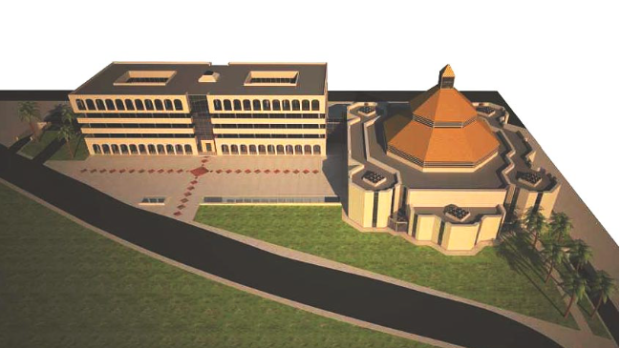One of the oil monarchies in the Persian Gulf will soon welcome a very visible sign of the growth in the number of Christians in this region of the Middle East.
Although it will be the second church in Bahrain, it won’t be just any regular church: In a short time, construction will begin on a large cathedral, capable of seating more than 2,000 faithful, in a country that today counts 80,000 Catholics.
The works that are planned to begin this month will last up to four years, according to Monsignor Camillo Ballin, vicar apostolic of Northern Arabia. The prelate also clarifies that from 2021 the Cathedral, placed under the protection of Notre Dame of Arabia, will bear testament to the presence of Christians on the Muslim land of one of the most powerful oil monarchies.
A growing number of Christians in the Gulf State
This vast project was decided upon five years ago, after King Hamad ben Issa al-Khalifa donated land 20 kilometers south of the capital to the Christian community. For three centuries, the Sunnite monarchy has ruled over this island in the Persian Gulf, situated between Qatar to the east and Saudi Arabia to the west.
If Islam largely dominates the political and religious landscape of Bahrain – it is both state religion and Islamic Sharia that determine the law of the land – there are still some 8,000 Christians in Bahrain. And this figure is continuing to grow: in the countries covered by the Apostolic Vicariate (Qatar, Saudi Arabia, Kuwait), the Christian populations represent millions, explains Monsignor Ballin. For most, these Christians are migrants, notably from the Philippines, but also from India: an increase in the population brought about by the need of a workforce in a country which has built its riches thanks to the oil industry.
A spiritual center for Arabia
From now on, the new Christian edifice will allow the whole of the region to gather in the seat of the vicariate. Logically, the cathedral will become the seat of the Church in the region.
But beyond the administrative aspect, Notre Dame of Arabia also has the ambition of becoming a center of spiritual training, the bishop points out. Priests could for example could go on retreats or give catechism courses. More than just an official recognition for the Christian community, this cathedral is responding to a real spiritual need.
Finally, this future cathedral is the sign of a certain openness in the Kingdom of Bahrain, stresses the Vicar Apostolic. It is indeed with these words that Mgr. Bernardito Auza, in 2016 the Permanent Observer to the Holy See of the United Nations, praised the regime. The pope’s representative highlighted the singularity of this welcome of religious pluralism in a region in which openness isn’t always present.
For more information visit here.
~
Translated from French by Cerith Gardiner.

